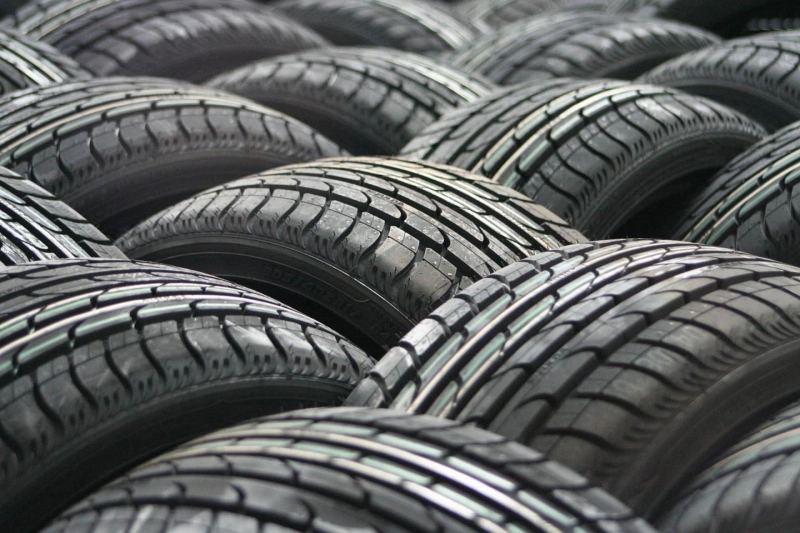As a business owner, you understand the importance of reliable transportation for the smooth functioning of your operations. Whether you own a fleet of delivery trucks, buses, or other commercial vehicles, ensuring their safety and performance is crucial. One essential component that plays a significant role in the efficiency of commercial vehicles is the tires they use. In this article, we will delve into the world of TBR (Truck and Bus Radial) commercial tyres, exploring their significance, types, benefits, maintenance, and more.
Understanding TBR Commercial Tyres
TBR tyres are specifically designed for heavy-duty vehicles like trucks and buses. Unlike passenger car tyres, TBR tyres are built to withstand greater loads, extended mileage, and challenging road conditions. Their robust construction, reinforced sidewalls, and deeper treads make them ideal for commercial use, ensuring durability and enhanced performance.
Investing in high-quality TBR commercial tyres is vital for several reasons. Firstly, they offer improved safety, providing better traction and stability on the road. This reduces the risk of accidents and promotes the well-being of both drivers and passengers. Additionally, TBR tyres contribute to fuel efficiency by reducing rolling resistance, leading to cost savings in the long run. Moreover, their durability and longevity result in reduced downtime and maintenance expenses.
When selecting TBR commercial tyres for your vehicles, several factors should be taken into account. Firstly, understanding the specific load capacity requirements of your vehicles is essential. The load index and speed rating of the tyres should match the vehicle's specifications. Additionally, considering the road and weather conditions the vehicles operate in helps determine the tread pattern and compound type required. Other aspects such as noise levels, wet grip performance, and retreadability should also be considered.
Different Types of TBR Commercial Tyres
TBR commercial tyres come in various types to cater to different applications. Some common types include:
Highway Tires:
Designed for long-haul transportation on paved roads, these tires offer excellent mileage and fuel efficiency.
Regional Tires:
Ideal for vehicles operating in regional or urban areas, these tires provide a balance between durability, traction, and maneuverability.
On/Off-Road Tires:
Suitable for vehicles that frequently encounter both paved and unpaved roads, these tires offer enhanced traction and durability in challenging conditions.
All-Position Tires:
Versatile tires that can be used in any position on the vehicle, offering reliable performance and stability.
Using TBR commercial tyres brings numerous benefits to businesses. Firstly, their robust construction and enhanced puncture resistance minimize the risk of tire damage, reducing the likelihood of unexpected breakdowns and delays. Secondly, these tires provide excellent load-carrying capacity, ensuring that your vehicles can transport goods and passengers efficiently. Additionally, the advanced tread compounds and patterns of TBR tyres offer superior grip, resulting in improved handling and stability.
Cost-Effectiveness of TBR Commercial Tyres
Although the initial investment in TBR commercial tyres may be higher than passenger car tyres, their cost-effectiveness becomes apparent in the long run. The durability and extended tread life of TBR tyres reduce the frequency of replacements, resulting in cost savings over time. Moreover, their fuel efficiency contributes to reduced operating expenses, making them a cost-effective choice for businesses relying on commercial vehicles.
In addition to their performance and cost benefits, TBR commercial tyres also offer environmental advantages. The fuel efficiency of these tyres helps reduce greenhouse gas emissions, contributing to a greener and more sustainable transportation industry. Furthermore, some TBR tyres are designed with low rolling resistance, which reduces carbon dioxide emissions while enhancing fuel economy.
It's essential to note the differences between TBR commercial tyres and passenger car tyres. TBR tyres are specifically designed for heavy-duty vehicles and their unique requirements, while passenger car tyres cater to smaller vehicles. The load-carrying capacity, tread patterns, and construction of TBR tyres differ significantly from passenger car tyres. It's crucial to choose the appropriate tyre type based on the vehicle's specifications and intended use.
Conclusion
Investing in high-quality commercial TBR tyres is a prudent choice for business owners operating heavy-duty vehicles. The durability, safety, and cost-effectiveness of these tyres make them indispensable for smooth and efficient transportation operations. By considering the factors discussed in this article and implementing proper maintenance practices, businesses can optimize the performance and lifespan of their TBR commercial tyres, ensuring a reliable and cost-efficient fleet.



